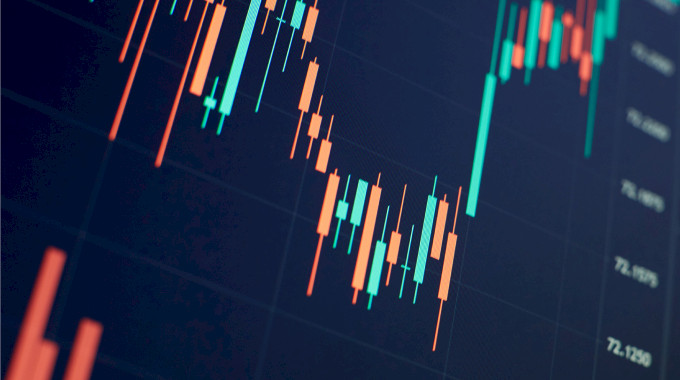With high-profile rocket launches and perhaps an even higher-profile founder in Elon Musk, SpaceX has captured the attention of aerospace fans and investors alike. Not only has the company evolved significantly from a technological perspective, but its valuation has swelled to make SpaceX the most valuable private startup, due to a December 2024 tender offer valuing the company at around $350 billion, according to Bloomberg.2
These tender offers have been occurring approximately every six months in recent years to let employees cash out while the company remains private.3 The most recent tender offer suggests that an IPO is not in the works right now, according to MarketWatch.4 Another rumored plan in July 2025 suggested SpaceX would sell around $1 billion in a tender offer that would value the company at $400 billion.5
Still, there's speculation that SpaceX could eventually go public. For example, Vijay Marolia, Chief Investment Officer of Regal Point Capital, told MarketWatch in early 2024 that SpaceX could IPO as soon as in 2025 or 2026.6
Meanwhile, accredited investors can potentially invest in SpaceX stock pre-IPO, and retail investors can potentially gain exposure through other publicly traded avenues.
Here, we'll take a closer look at how to invest in SpaceX stock pre-IPO.
SpaceX: Company background
SpaceX, formally named Space Exploration Technologies Corp., was founded in 2002.7 The company is currently based in the Los Angeles area in Hawthorne, CA, but it is planning on relocating its headquarters to Brownsville, TX.8
In addition to Musk serving as founder and CEO, other instrumental leaders have included Tom Mueller, SpaceX's first employee, who led the development of rocket engines that now power SpaceX's Falcon 9 rocket9 (Mueller left SpaceX to form Impulse Space in 202010); another early employee, Gwynne Shotwell, today serves as president and COO, having led key business development initiatives like securing contracts with NASA.11
Partnering with government agencies like NASA, such as for deliveries to the International Space Station,12 has helped SpaceX rake in nearly $20 billion from government contracts since 2008, according to USA Today.13
While SpaceX has made a name for itself with innovations like reusable rockets that improve affordability (rather than ones that burn upon when re-entering the Earth's atmosphere),14 its satellite internet service, Starlink, has been a cash cow. For 2024, Starlink exceeded analyst expectations by bringing in an estimated $6.6 billion in revenue, according to Quality Space.15
Going forward, SpaceX is developing its next-generation reusable rocket, Starship, which could be used for purposes such as traveling to the Moon and Mars.16 However, SpaceX has reportedly hit delays in advancing Starship.17
SpaceX stock and funding history
SpaceX has an extensive funding history, with its Series A dating back to 2002. At that time, the company raised $30.5 million at a $122 million valuation and a $1.00 per share stock price.18
By 2007, SpaceX's stock price tripled to $3.00 with its Series C, and in 2010, SpaceX reached unicorn status through its Series F, in a round that raised over $50 million and brought the SpaceX stock price to $7.50.19
In 2015, SpaceX's Series G brought in over $1 billion at a $12 billion valuation, bringing the SpaceX stock price all the way to $77.46. In 2017, the SpaceX Series H raised nearly half a billion more, nearly doubling the SpaceX stock price to $135.00.20
In 2020, SpaceX had its largest primary equity funding round, raising $1.9 billion for its Series N, which brought the company's stock price to $270.00 at a valuation of $46.08 billion.21
Since then, SpaceX's stock price has continued to rise, based in part on moves like tender offers that have increased the company's valuation.
Following the most recent tender offer in December 2024, SpaceX's Forge Price rose to $213.39 as of early January 2025 up from an $87.08 Forge Price the year prior.22 Since then, it has climbed a bit more to reach $421 as of mid-December 2025, implying a valuation $800 billion.23


As of 12/17/2025
Forge Price is a derived data point that reflects the up-to-date price performance of venture-backed, late-stage companies, and is calculated based on a proprietary model incorporating pricing inputs from primary funding round information, secondary market transactions, and indications of interest (IOIs) on Forge.
How to buy SpaceX stock
As SpaceX remains a private company, opportunities to acquire its shares are limited. Typically, participation in primary funding rounds or tender offers is restricted to individuals selected by the company. However, accredited investors may be able to gain exposure to SpaceX’s equity through secondary market platforms like Forge, depending on availability and subject to applicable securities regulations.
If SpaceX were to conduct a public offering in the future, its stock could become more widely accessible. In the interim, accredited investors may seek indirect exposure to the space industry through companies that have commercial relationships with SpaceX. For example, Loft Orbital has utilized SpaceX’s launch services for deploying its satellite infrastructure, which Loft then rents space on to other customers in a space-infrastructure-as-a-service model.24 While this does not guarantee a correlation in business performance, such relationships may be of interest to investors evaluating the broader space ecosystem.
Who can invest in SpaceX pre-IPO?
Like with any other private company, investing in SpaceX pre-IPO has some general limitations. For the most part, investment is limited to institutional investors or high-net-worth individuals that SpaceX accepts as primary funding round investors. Those who qualify as accredited investors, such as based on having a net worth over $1 million (excluding primary residence), may also be able to invest in SpaceX through a secondary marketplace such as Forge. However, that secondary market investment is contingent on existing investors choosing to and being allowed to list their shares for sale.
Where to buy pre-IPO SpaceX stock
Accredited investors may be able to buy pre-IPO SpaceX stock through a secondary marketplace such as Forge, depending on availability. To trade on a platform such as Forge, existing shareholders such as employees must decide to list their shares for sale, and private companies like SpaceX generally have a right of first refusal (ROFR) to buy shares before they are listed on secondary marketplaces, so availability could be hard to come by.
That said, those who are interested in investing in SpaceX pre-IPO or other startups may wish to create an account with Forge and speak with a Private Market Specialist to stay informed about whether SpaceX shares or similar stock becomes available through Forge.
Potential indirect exposure to SpaceX for non-accredited investors
Although retail investors generally cannot invest in startups like SpaceX directly the way that accredited investors can, that doesn't mean retail investors are completely shut out.
1. Publicly traded funds
One way to still get some exposure to SpaceX stock is to invest in publicly traded funds that hold SpaceX shares. For example, Destiny Tech 100 is a closed-end mutual fund that currently holds more than one-third of its portfolio in SpaceX stock via special purpose vehicles (SPVs). The ARK Venture Fund is another closed-end fund, in which SpaceX accounts for over 15% of its portfolio.
These funds' performance depends in part on SpaceX stock performance, although other holdings also influence fund returns. Keep in mind that fees for some vehicles that hold private assets can be significantly higher compared to other types of funds.
2. Tesla stock
Another way to gain some exposure to SpaceX stock is to invest in Tesla, a publicly traded company. While this is a more indirect route, the fact that both companies are led by Musk could provide some correlation. Synergies and collaboration could also occur between the companies, such as how SpaceX technology is reportedly being implemented into a new Tesla vehicle.23
3. Publicly traded aerospace companies
Investing in other publicly traded aerospace companies like Boeing, Lockheed Martin, and Northrup Grumman could also potentially provide some indirect exposure to SpaceX, in the sense that if the aerospace industry as a whole grows, then all of these stocks could potentially gain value.
Rocket Lab USA is another publicly traded company that's involved in similar areas such as launch services, so growth in that category could benefit both SpaceX and Rocket Lab, though competition between the companies could also cause one to rise while the other falls.
How to analyze SpaceX stock
Since private companies do not provide the same financial transparency that public companies generally do, analyzing SpaceX stock can be challenging for the average investor. However, using the available public data such as on SpaceX's funding history and certain revenue figures could help investors compare SpaceX's stock price to other startups trading on private marketplaces like Forge.
Keep in mind, however, that it's hard to make direct, objective comparisons with limited public data, and this is complicated by the fact that SpaceX is in an elite tier of highly valued private companies, so there aren't necessarily many options for comparison.
There also aren't many publicly traded companies in comparable areas, but looking at the valuations of companies involved in aerospace like Boeing, Lockheed Martin, Rocket Lab USA, and Northrop Grumman could at least provide some reference points. Still, these companies are involved in areas that SpaceX is not, so these aren't perfect comparisons. Moreover, private companies typically carry more risk than publicly traded companies, due to factors such as limited liquidity, which arguably affects how one would value SpaceX.
Get started investing in SpaceX on Forge
If you want to invest in SpaceX pre-IPO if/when shares become available, create an account with Forge marketplace to access our deep marketplace of private market securities.
After you create a free account, you can potentially buy and sell private market shares in SpaceX and other startups based on availability.
Forge aims to bring greater transparency to an otherwise opaque private market, and as a publicly traded company, it operates within a regulated environment that allows investors to explore private market access.




